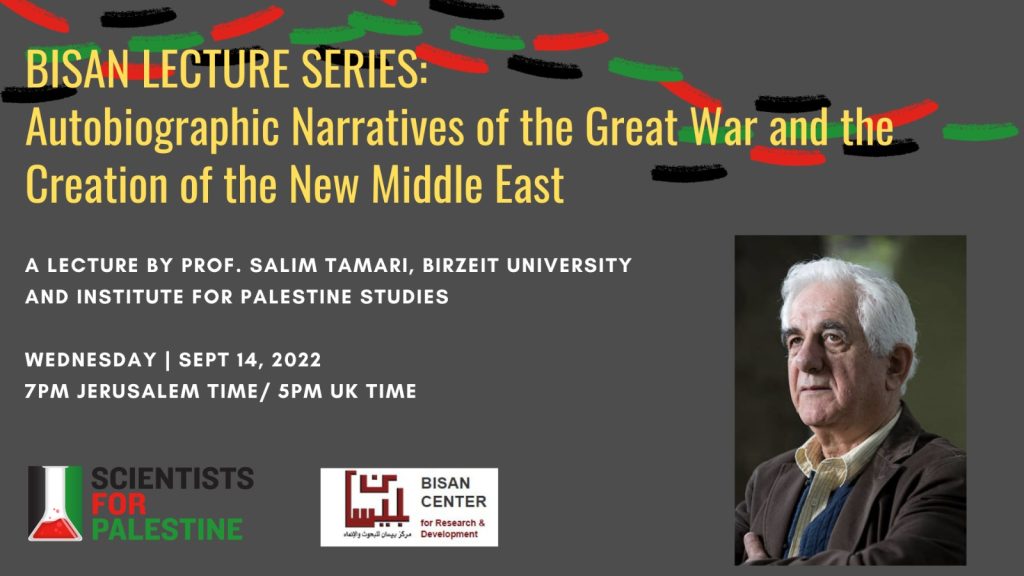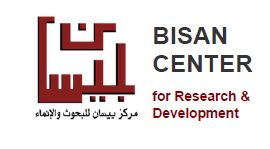
Join us on Wednesday, Sep 14th for a webinar by Prof. Salim Tamari! Recording available below!
Title: Autobiographic Narratives of the Great War and the Creation of the New Middle East
Speaker: Prof. Salim Tamari, Birzeit University
Recording
Abstract: The Great War on the Eastern Front, looked at from the passage of one century, led to major transformations in the way in which the people of the region – from the Ottoman capital of Istanbul to the Arab provinces of the Empire – looked at themselves and at the world. What I propose to do is to see how the war and the fighting were reflected in the biographical trajectories of soldiers who fought in it and civilians who endured it, and how the war affected the transformation of their lives and the reshaping of their identity and affiliations during and after the war.
The war was so devastating that, according to contemporary accounts, it took a toll of one-sixth of the total population of greater Syria—one of the highest among all war fronts during that period. In this presentation, I will examine this great transformation through the lives of three civilians and three soldiers whose life trajectories marked the transition from Ottomanism to the new Middle East of Arab and Turkish nationalism. The writers include Khalil Sakakini, who kept a diary during the war in Jerusalem. His account is riveting in that it captured a vivid portrait for the desolation of the city in 1915 and 1916, the famine years. Muhammad Kurd Ali’s Damascene memoirs include his period as a publicist, some critics would say apologist, for the excesses of Jamal and Anwar (Enver) Pashas in Syria and Palestine. The most important fictional work to come out of the Great War in Arabic is The Life of Mifleh al Ghassani (1921) by the Palestinian writer and journalist, Najib Nassar, whose the novella is a thinly disguised autobiographical war memoir of the author, who spent 1916-1917 hiding from the Turkish gendarmes in the Bedouin encampments of the Jordan Valley.
Register here!
Biographical Sketch: Salim Tamari
Salim Tamari is currently Professor of Sociology (Emeritus) at Birzeit University, Senior Research Associate at the Institute for Palestine Studies, and editor of The Jerusalem Quarterly. Rashid Khalidi, the Edward Said Professor of Modern Arab Studies at Columbia University, has called Salim Tamari “the preeminent Palestinian historical sociologist.”
Salim Tamari holds a Ph.D. from Manchester University and has been a visiting faculty members in several universities in Europe and the United States over the years, including: Ca Foscari University, Venice; the University of California, Berkeley; Georgetown University; New York University; Cornell University; the University of Chicago; Harvard University; and Columbia University.
Drawing upon archival materials and personal diaries, Salim Tamari has produced numerous studies documenting and analyzing Palestinian society. His recent books include: Mountain Against the Sea: A Conflicted Modernity (2008), Year of the Locust: Erasure of the Ottoman Era in Palestine (2011), The Great War and the Remaking of Palestine (2018), and Landed Property and Public Endowments in Jerusalem (with Munir Fakhr Ed Din, 2018).
Salim Tamari’s awards include the 2018 Middle East Monitor Prize for his book The Great War and the Remaking of Palestine and the 2017 State of Palestine Prize for Lifetime Achievements in the social sciences and humanities.
Register here!
Sponsored by



